Filter by

Movement of knowledge : medical humanities perspectives on medicine, science,…
Medical knowledge is always in motion. It moves from the lab to the office, from a press release to a patient, from an academic journal to a civil servant’s desk and then on to a policymaker. Knowledge is deconstructed, reconstructed, and transformed as it moves. The dynamic, ever-evolving nature of medical knowledge has given rise to different concepts to explain it: diffusion, translation, …
- Edition
- -
- ISBN/ISSN
- 9789188909367
- Collation
- 261 p.
- Series Title
- -
- Call Number
- 610.1 HAN m

Vaccines, medicines and COVID-19: how can WHO be given a stronger voice?
This open access book is a collection of research papers on COVID-19 by Germán Velásquez from 2020 and early 2021 that help to answer the question: How can an agency like the World Health Organization (WHO) be given a stronger voice to exercise authority and leadership? The considerable health, economic and social challenges that the world faced at the beginning of 2020 with COVID-19 continue…
- Edition
- -
- ISBN/ISSN
- 9783030891251
- Collation
- XVI,
- Series Title
- SpringerBriefs in Public Health
- Call Number
- 615.372 VEL v

Pesticides, organic contaminants, and pathogens in air : chemodynamics, healt…
The air is an important but largely unrecognized source of contaminant fate in the environment, including transport of pesticides and contaminants to nontarget areas and exposures for people and wildlife. This book summarizes and places in perspective the potential transport, transformation, and health implications of pesticides and contaminants in air, including the air we breathe. It delves i…
- Edition
- -
- ISBN/ISSN
- 9781003217602
- Collation
- xxix, 230. : ill.
- Series Title
- -
- Call Number
- 363.73922 JAM p
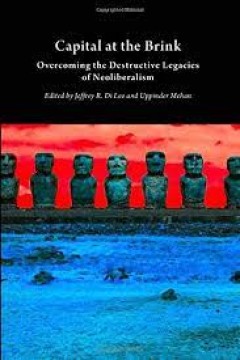
Capital at the brink : overcoming the destructive legacies of neoliberalism
Capital at the Brink reveals the pervasiveness, destructiveness, and dominance of neoliberalism within American society and culture. The contributors to this collection also offer points of resistance to an ideology wherein, to borrow Henry Giroux’s comment, “everything either is for sale or is plundered for profit.” The first step in fighting neoliberalism is to make it visible. By discu…
- Edition
- -
- ISBN/ISSN
- 9781607853060
- Collation
- 277p. ; ill.
- Series Title
- -
- Call Number
- 320.51 JEF c
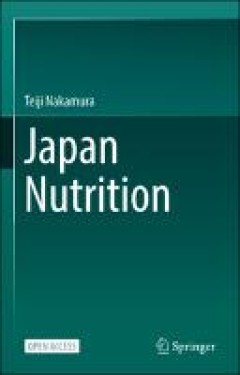
Japan nutrition
This Open Access auto-translation book demonstrates a time series of nutrition improvement in Japan since the introduction of nutrition sciences to Japan about 150 years ago. The chapters present the historical event where nutritional deficiency due to food shortage was improved in almost a century, by the introduction of nutrition policy and practices such as the "Nutrition Improvement Law". T…
- Edition
- -
- ISBN/ISSN
- 9789811663161
- Collation
- xi, 200 p. : ill.
- Series Title
- -
- Call Number
- 572 NAK j
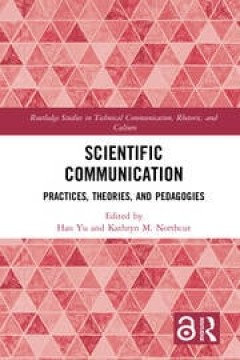
Scientific communication : practices, theories, and pedagogies
This book addresses the roles and challenges of people who communicate science, who work with scientists, and who teach STEM majors how to write. In terms of practice and theory, chapters address themes encountered by scientists and communicators, including ethical challenges, visual displays, and communication with publics, as well as changed and changing contexts and genres. The pedagogy sect…
- Edition
- -
- ISBN/ISSN
- 9781315160191
- Collation
- vi, 333 p. ; ill
- Series Title
- -
- Call Number
- 808.0665 NOR s
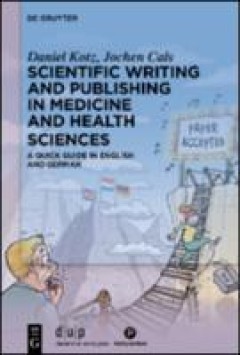
Scientific writing and publishing in medicine and health sciences : a quick g…
Writing and publishing scientific papers is the core business of researchers, but is often experienced as difficult and frustrating. This book provides clear and concise key information on 12 major aspects of the process, from how to get started to dealing with reviewers’ comments. We describe each aspect structured into background information (‘‘What you should know’’), concrete advi…
- Edition
- -
- ISBN/ISSN
- 9783110721621
- Collation
- 83 p. : ill.
- Series Title
- -
- Call Number
- 610.72 KOT s
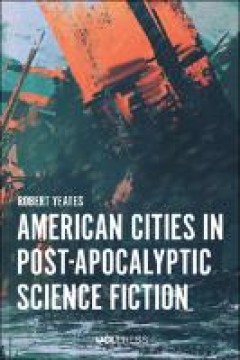
American cities in post-apocalyptic science fiction
Visions of the American city in post-apocalyptic ruin permeate literary and popular fiction, across print, visual, audio and digital media. American Cities in Post-Apocalyptic Science Fiction explores the prevalence of these representations in American culture, drawing from a wide range of primary and critical works from the early-twentieth century to today. Beginning with science fiction in li…
- Edition
- -
- ISBN/ISSN
- 9781800080980
- Collation
- ix, 201 p. : ill
- Series Title
- -
- Call Number
- 810.9321732 YEA a
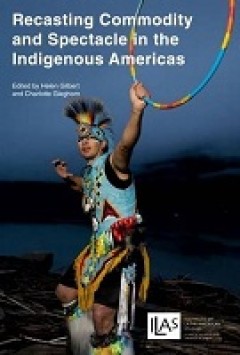
Recasting commodity and spectacle in the indigenous Americas
Indigenous artists frequently voice concerns over the commodification of their cultures, a process acutely felt by those living with the consequences of colonialism. This timely book, which features colour illustrations throughout, examines the ways in which contemporary indigenous peoples in different parts of the Americas have harnessed performance practices to resist imposed stereotypes and …
- Edition
- -
- ISBN/ISSN
- 9781908857088
- Collation
- ix, 273p.
- Series Title
- -
- Call Number
- 700.98 REC g
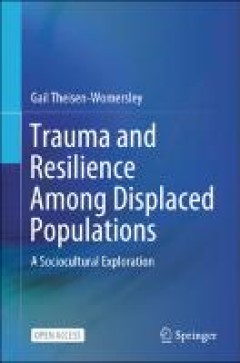
Trauma and resilience among displaced populations : a sociocultural exploration
This open access book provides an enriched understanding of historical, collective, cultural, and identity-related trauma, emphasising the social and political location of human subjects. It therefore presents a socio-ecological perspective on trauma, rather than viewing displaced individuals as traumatised “passive victims”. The vastness of the phenomenon of trauma among displaced populati…
- Edition
- -
- ISBN/ISSN
- 9783030677121
- Collation
- x, 305p.
- Series Title
- -
- Call Number
- 305.906914 TRA t
 Computer Science, Information & General Works
Computer Science, Information & General Works  Philosophy & Psychology
Philosophy & Psychology  Religion
Religion  Social Sciences
Social Sciences  Language
Language  Pure Science
Pure Science  Applied Sciences
Applied Sciences  Art & Recreation
Art & Recreation  Literature
Literature  History & Geography
History & Geography